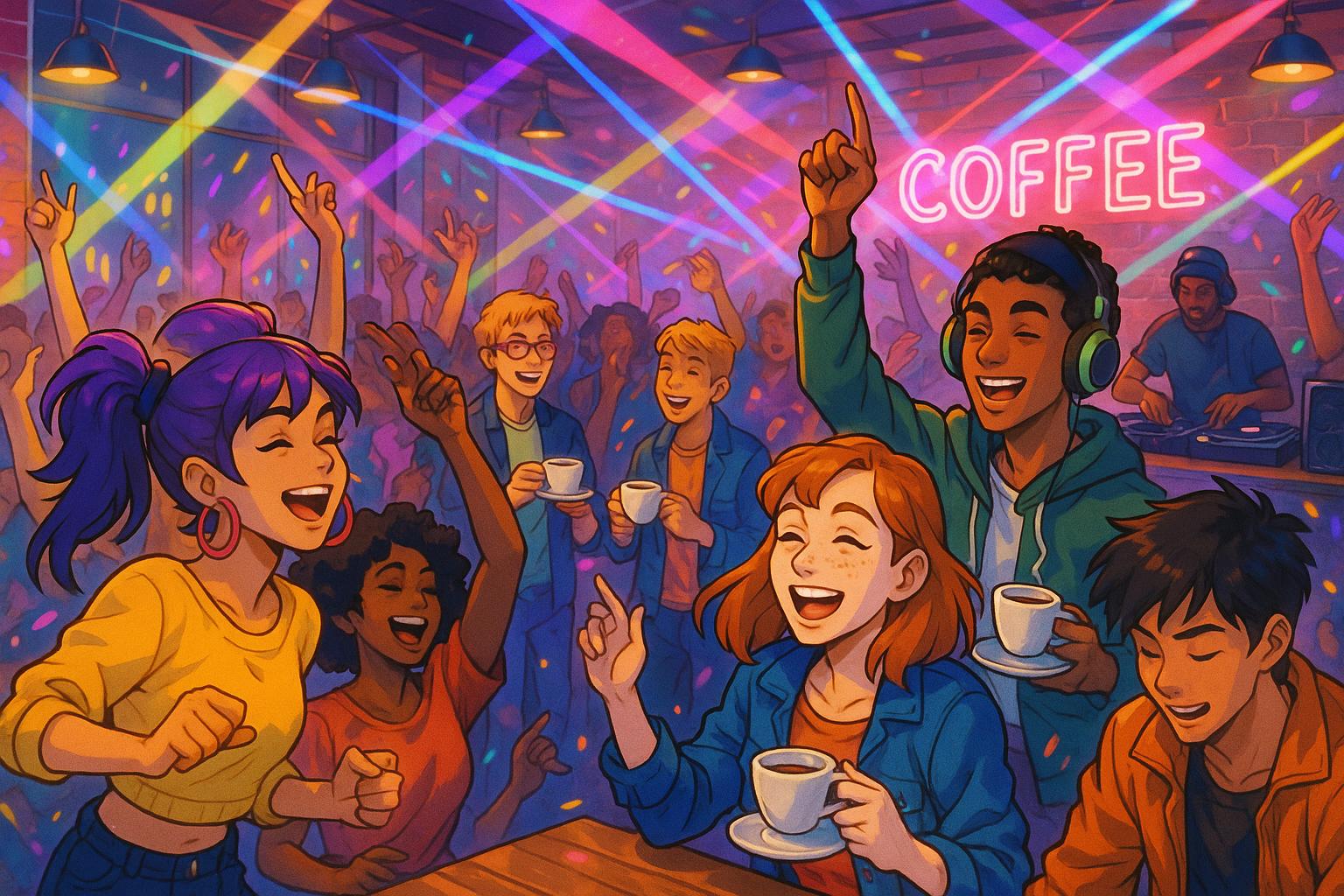The vibrant, pulsating nightlife that once characterised London's weekends appears to be undergoing a significant transformation. With the rapid decline of traditional nightclubs—over 3,000 venues closing since the pandemic—many young people are now seeking alternative forms of socialising. In their place, a new trend known as "coffee shop raves" is emerging, as younger generations opt for caffeine-infused gatherings over late-night escapades fuelled by alcohol.
Historically, turning 18 marked the passage into a world of fervent nightlife, complete with clubs serving shots of vodka and endless hours of dancing. Yet, the allure of this lifestyle is waning. Recent statistics indicate that individuals aged 18 to 30 are venturing out later and drinking less, reportedly due to financial constraints and safety concerns. As the Night Time Industries Association has noted, the combination of steep entry prices and the socio-political climate surrounding nightlife has reshaped young people's preferences.
The coffee shop rave phenomenon fits seamlessly into this cultural shift. In lieu of opulent clubs requiring a dress code and hefty cover charges, these new gatherings offer an inclusive atmosphere where attendees can freely express their love for music without the pressure of alcohol consumption. DJ Louis Bekk, a driving force behind the trend, understands the frustration of many party-goers who grow weary of the exclusivity and elitism prevalent in established nightclubs. Speaking about his mission to transform the music culture, Bekk remarked, "I wanted to create somewhere anyone could come. You just need to be interested in the music."
This revitalised approach is particularly appealing to Gen Z, who increasingly seek social connections without the requisite hangovers. A report by GWI highlights that nearly 43 per cent of young adults aged 18 to 34 are opting out of alcohol altogether. This trend mirrors a broader shift, with many viewing drinking as less integral to social experiences, favouring instead opportunities that promote health and well-being.
One notable example of this paradigm shift occurred at How Matcha in Marylebone, where Bekk's viral coffee shop rave successfully combined an exciting atmosphere with an ethos of inclusivity. Those who attended reported feeling revitalised rather than fatigued the next day, exemplifying the new social standard. As one reveler observed, the event allowed for a genuine social environment, fostering interactions among various age groups, and even accommodating families.
Despite these innovative approaches, the overarching nightlife landscape remains fragile. The closure of numerous establishments creates uncertainty for the future of live events. Recent initiatives aimed at revitalising London's nightlife may lend a hand, but they face uphill battles against high operating costs, noise complaints, and restrictive licensing regulations. Moreover, even the operators of successful venues express caution amidst the changing tide.
While some venues adapt by hosting morning dances or diversifying their offerings, the decline of traditional pubs and clubs raises questions about the sustainability of London's social fabric. Since 1992, the number of pubs in the UK has decreased dramatically—from 62,000 to just under 39,100 in the first half of 2024, primarily due to increased operating costs and a shifting consumer base. Many pubs are now exploring new business models, including hosting community events to survive in this reshaped market.
As influencers and celebrities further promote health-conscious living, it's likely that alternatives to traditional nightlife—like coffee shop raves—will become increasingly mainstream. Prospective party-goers can expect to trade their late-night clubbing for daytime social events that encourage not only music appreciation but also community engagement and personal well-being. The landscape of London nightlife may be transforming, but it seems that the age-old desire for connection and enjoyment endures, albeit in a different form.
The interplay between music, social connections, and changing lifestyles hints at a fascinating evolution in how society celebrates life and community. While the neon-lit dance floors of yesteryear may soon be relics of the past, the spirit of music and togetherness is set to thrive in new, refreshing environments.
Reference Map
- Paragraphs 1, 2, 3, 4, 5, 6, 7
- Paragraphs 6, 7
- Paragraph 7
- Paragraph 6
- Paragraphs 6, 7
- Paragraph 6
- Paragraph 2, 3
Source: Noah Wire Services
